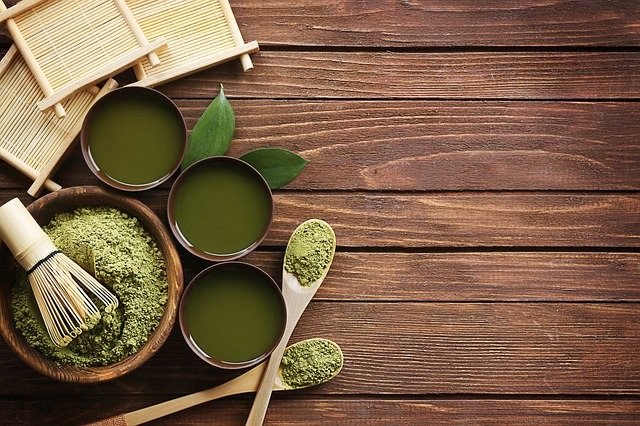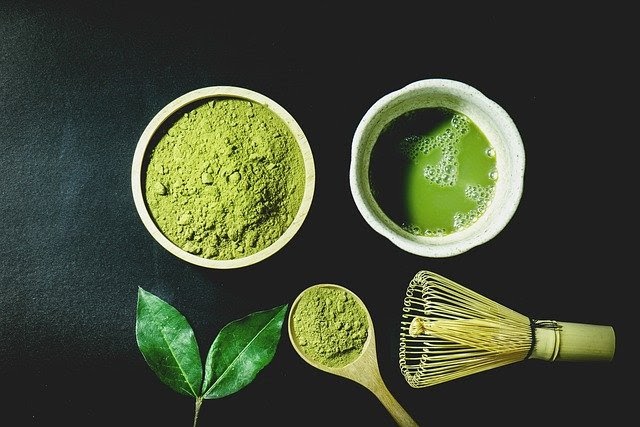In a span of merely three years, matcha has made its way into the global food scene. From teas, lattes, cocktails, to desserts, popsicles, and more, this versatile Japanese powdered plant is slowly becoming a staple of organic living. Matcha packs plenty of antioxidants and nutrients that deliver impressive health benefits, from weight loss to a nice energy boost. Of course, it goes without saying that not all matcha powders are created equal. If you’re eager to hop on the healthy bandwagon, this article will flesh out everything you need to consider to select premium matcha powder.

Packaging
The first tell-tale sign of a matcha powder’s quality is its packaging. Ideally, the product should be completely airtight for optimal preservation; this will prevent oxidation and the matcha from losing its taste and nutritive properties over time. At your local store or online, look for matcha powders that are sold in resealable bags, or better yet, tin cans. In passing, check the list of ingredients and labels as proof of quality; avoid purchasing matcha with added green tea, sugar, stabilizers, or artificial flavors.
Value for Money
While you’re at it, also take a look at the price tag. Premium matcha is not a cheap product by any means, which is why it’s best to steer clear of “tempting” offers. Whether you’re looking to buy matcha powder for your own kitchen or to supply your coffee shop, the deals from MatchaOutlet.com provide a comprehensive overview of different kinds of matchas, their price points, and where to purchase them. Generally speaking, buying in bulk is always more advantageous, so be sure to conduct some research before choosing a provider.
Color
Fresh, high-quality matcha powder has a vibrant frog green color (which, in many ways, explains its recent success all over social media). In fact, the greener its color, the more nutritional it will be. However, a yellowish or brownish powder is often indicative of less rigorous manufacturing or unnatural blends, and therefore, lower quality. As such, always pay attention to the color of the matcha powder, as it’s a prime indicator of freshness.
Texture
Ceremonial and culinary-grade matcha powders have a distinctively smooth consistency to the touch. It shouldn’t feel granular or clumpy. The best kinds of matcha are fine, silky, and mix effortlessly with liquids, whether water or milk. By contrast, a low-grade product will have a bigger particle size; if it feels coarse between your fingers or leaves some sediment at the bottom of your cup, it most likely isn’t the best quality to begin with.
Aroma
Matcha is known and appreciated for its fresh, sweet, fragrant scent. The powder gets its aroma from L-theanine, an amino acid compound naturally present in the plant’s leaves. If you’ve never tried matcha-based drinks or desserts before, see with your barista if they’d be willing to provide you with a raw product sample. You should definitely be able to smell the “greenness.” On the other hand, poor-quality matcha powders often have a stale, unpleasant, or grassy smell.
Taste
Sadly, most people don’t like matcha because they haven’t tried the good kind. According to experts, premium matcha powder has a rich yet delicate balance between sweetness and bitterness, with subtle vegetal undertones. It should be easy to drink and not have any chalky, overly bitter, or metallic aftertaste. Be sure to visit a specialized shop to enjoy a product sample before purchasing, or order a drink at your local café. While it may appear greener than grass and silkier than silk, ultimately, it’s the taste that will tell you whether you’re consuming high-quality matcha.
Origin
Lastly, but importantly, ensure that the product you buy is from Japan, the original birthing place of matcha. Thanks to the ideal growing condition for these praised green tea leaves, the Japanese have perfected that art of manufacturing matcha powder for centuries. Besides, the country enforces strict standards for organic agriculture and processing methods; it may cost slightly more than, say, a Chinese matcha, but the product’s quality is definitely worth paying a premium.
All things considered, high-quality matcha is a game-changer. Its health benefits are well beyond debate. Now, whether you want to consume it for its health benefits, serve it at your own venue, or experiment with baking, acquiring the right kind of matcha powder is essential. By paying special attention to the product’s packaging, appearance, consistency, aroma, and taste, you’ll be able to select a high-quality matcha powder for all your needs. Don’t hesitate to visit your local organic store, read online customer reviews, and compare websites before making a final decision. Bon appétit!


